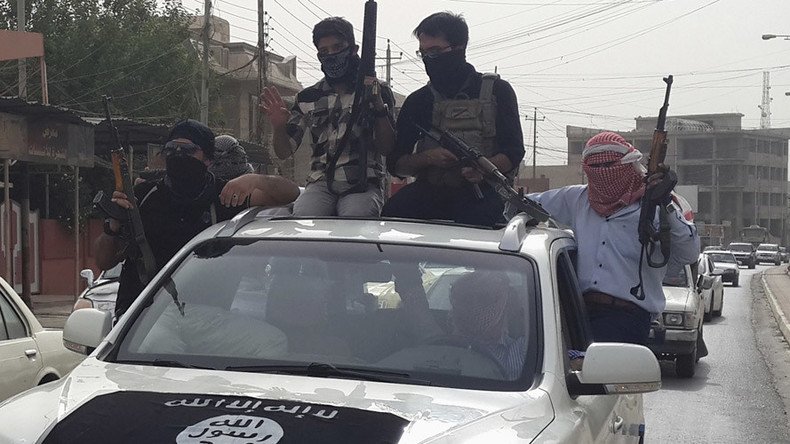'Few recruited to ISIS identify with its ideology'

ISIS fighters don’t necessarily share the extreme interpretation of Islam, but they are attracted by an opportunity to gain revenge for what they see as harm done to them, says Stephen Zunes, Professor of Politics at the University of San Francisco.
RT: ISIS has released a video of its own so-called police controlling the Libyan city of Sirte. Isn't it ironic that jihadists took over order and control in a country left without a government?
Stephen Zunes: Not at all ironic. This tends to be the case when you have governments fall not by a popular non-violent uprising of their people, but by a broad coalition of militia with their own separate agenda that are unable to impose any kind of cohesive governance on a country. And it is too bad too, because when they actually had free elections even after the overthrow of Gaddafi, it was moderate parties that got the majority. But when you had 200,000 people and arms in a country of less than six million who are not loyal to the government that had their own agenda - or agendas, because there were a number of competing factions - you create just a kind of power vacuum where extremists like those and ISIS can take advantage and gain a foothold.
RT: Why do you think the terrorist group is showcasing Libya in its latest propaganda video?
SZ: They don’t control huge amount of territory, but they do control one major city and surrounding areas. Of course, the propaganda video shows things looking happy and normal. That may not necessarily be the case. But it does show that they do definitely have an area under their exclusive sovereignty… And there is an ongoing civil war between a dozen or so different mujahedeen factions and the group called the Taliban, who, we know, are pretty hard core, but [they said] “at least we can bring stability and order to the country” and they were able to end up taking over about 85 percent of Afghanistan. So, there is a very real threat that unless the other parties in the ongoing conflict in Libya can get their act together and cobble together a real coalition government that truly represents them and not foreign interests and not just people with guns, I can see a situation where ISIL might end up expanding its area of control as well.
RT: How successful has ISIS's policing been?
SZ: Of course, their kind of Islam is not very popular. They are a cult for all intent and purposes. Very few Muslims identify with their kind of ideology. As you noticed, for example, a survey of ISIS prisoners held by the Iraqi government and others, most people that are attracted by the recruiters don’t necessarily share their reactionary extreme interpretation of Islam, but they are attracted to this opportunity to gain revenge for what they see as harm done to them and their families by foreign intervention, by rival governments and rival groups and simply an opportunity to be part of a movement that seems to be accomplishing something.
RT: Does it have to do with the difficulties they are facing in Syria?
SZ: There have been both gains and losses by ISIS forces in Syria and Iraq. The operations in Libya seem to be based more on opportunities as they exist. So, if we see ISIS rise or fall in various other countries it is based on what they are able to do there and not necessarily what happens back in their base area.
LISTEN MORE:
The statements, views and opinions expressed in this column are solely those of the author and do not necessarily represent those of RT.













